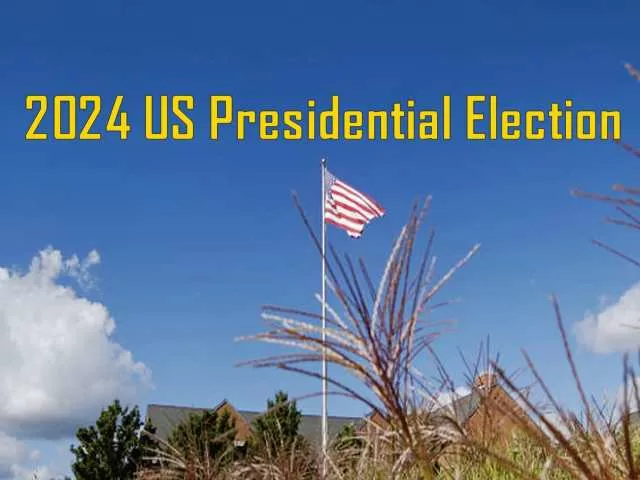Navigating the 2024 US Presidential Election: From Primaries to Inauguration
As the 60th US presidential election looms on November 5, 2024, the nation gears up for a political spectacle filled with primaries, caucuses, and debates. With incumbent President Joe Biden and former President Donald Trump in the race for re-election, the journey to the White House promises to be both riveting and crucial.
Caucuses and Primaries: Gateway to the Race
Before candidates can dream of occupying the Oval Office, they must traverse the path of caucuses and primaries. Caucuses, organized by political parties at various levels, see participants rallying for their favored candidates, determining delegate distribution. Primaries, held at the state level, allow citizens to anonymously cast votes, shaping the delegate count and influencing the candidate nomination.
Key Dates:
- Iowa Republican Caucus (January 15): The GOP kicks off the race, a make-or-break moment for candidates.
- Iowa Democratic Caucus (January 15): Democrats opt for a mail-in ballot, an innovative response to past tech meltdowns.
- Republican Presidential Debates (January 18, January 21): Broadcasting giants host debates in New Hampshire, a battleground for top candidates.
- New Hampshire Primary (January 23): State-run primary where participants cast secret ballots for their preferred candidates.
- South Carolina Democratic Primary (February 3): A significant primary for Biden, aiming to recharge his re-election bid.
- Nevada Primary and Caucus (February 6, February 8): Democrats and Republicans take their turn in this key state.
- Michigan Primary (February 27): Both parties vote in Michigan, setting the stage for a decisive Super Tuesday.
- Super Tuesday (March 5): A pivotal day with primaries in over a dozen states, shaping the presidential nomination landscape.
- Last Primaries (March 12, March 19, June 4): Georgia, Mississippi, Washington, Arizona, Florida, Illinois, Kansas, Ohio – concluding the state-by-state primaries.
National Conventions: Pinnacle of Party Politics
Come July and August, the spotlight shifts to the national conventions, where the Republican and Democratic parties officially nominate their candidates. Delegates from each state gather to cast votes, determining the party’s representative for the presidential election.
- Republican National Convention (July 15 to 18): Milwaukee hosts the GOP’s official candidate selection.
- Democratic National Convention (August 19 to 22): Chicago becomes the stage for Democrats to announce their chosen nominee.
Presidential Debates: Clash of the Titans
September marks the commencement of presidential debates, offering a platform for candidates to articulate their visions. From San Marcos, Texas, to Salt Lake City, Utah, these debates pave the way for voters to assess the contenders.
- First Presidential Debate (September 16): San Marcos, Texas hosts the initial face-off.
- Vice-Presidential Debate (September 25): Easton, Pennsylvania witnesses the only debate focused on vice-presidential candidates.
- Second Presidential Debate (October 1): Petersburg, Virginia sets the stage for a critical debate.
- Third Presidential Debate (October 9): Salt Lake City, Utah provides the backdrop for the final showdown before Election Day.
Election Day and Beyond: The Culmination
November 5, 2024, marks the pinnacle of the democratic process, as registered US voters cast their ballots. With 270 electoral votes needed to secure victory, the nation awaits results that may take days to unfold, especially with the influence of mail-in ballots.
- Electoral College Vote Count (January 6, 2025): The sitting vice president presides over the count, a pivotal moment following the Electoral Count Reform Act of 2022.
- Inauguration Ceremony (January 20, 2025): The newly elected president and vice president are sworn into office, marking the culmination of a journey that began with caucuses and primaries.
As the nation embarks on this political odyssey, the 2024 US presidential election promises to be a defining chapter in American history, shaped by the choices made in caucuses, primaries, debates, and, ultimately, at the ballot box.

